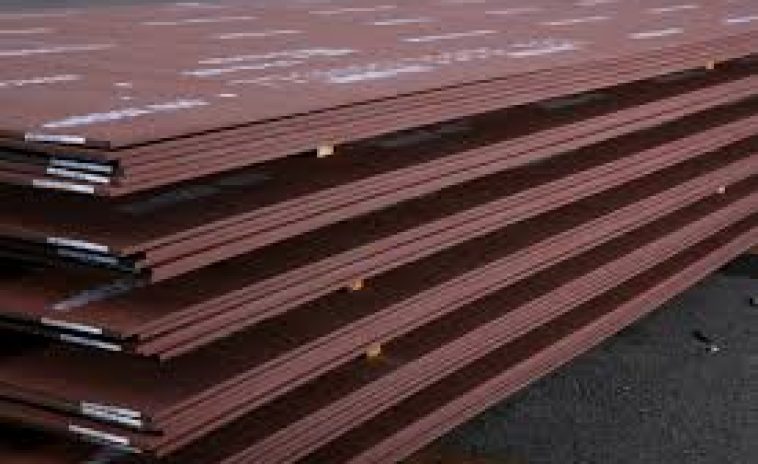How do aluminium suppliers ensure the quality of their products?

When businesses or individuals invest in metals for construction, manufacturing, or design purposes, quality assurance becomes the top priority. Aluminium, being one of the most widely used metals across industries, requires strict quality control before it reaches customers. From infrastructure projects to consumer goods, the reliability of aluminium directly impacts durability, safety, and performance. A professional Aluminium Supplier Singapore understands that quality is not just about appearance but about strength, consistency, and compliance with global standards. So, how exactly do aluminium suppliers ensure that their products meet the highest standards?
Rigorous Sourcing of Raw Materials
The quality of aluminium starts at the source. Reliable suppliers carefully choose trusted smelters and mills that extract and refine bauxite ore into aluminium. Reputable partners follow sustainable mining practices and maintain consistency in alloy composition. When an Aluminium Supplier Singapore partners with certified raw material providers, they reduce the risk of impurities, ensuring their customers get aluminium that is strong, durable, and resistant to corrosion.
Similarly, suppliers who also deal with Stainless Steel Singapore follow the same principle—only sourcing from manufacturers with proven track records. This creates trust in industries such as construction, automotive, marine, and aerospace, where the integrity of the material is critical.
Compliance with International Standards
Aluminium products, whether sheets, bars, or extrusions, must meet international benchmarks such as ASTM, EN, or ISO standards. Trusted suppliers subject their products to audits and inspections to confirm compliance. They ensure that mechanical properties such as tensile strength, yield strength, and elongation are within required limits.
By adhering to these standards, suppliers not only guarantee quality but also provide customers with confidence that the aluminium can withstand demanding applications. In Singapore, where industries rely on precision and reliability, an Aluminium Supplier Singapore gains a competitive edge by showcasing adherence to recognized global standards.
Advanced Manufacturing and Processing Techniques
Once raw aluminium is obtained, suppliers use advanced manufacturing processes to shape it into various forms—plates, coils, tubes, or extrusions. Quality assurance is maintained through:
- Precision machining to achieve exact dimensions.
- Heat treatments to enhance durability and resistance.
- Surface finishing to protect against corrosion and improve aesthetics.
Suppliers also use automated systems to minimize human error and ensure uniformity. For example, extrusion processes are closely monitored for pressure and temperature consistency. These techniques allow customers to receive aluminium products that match their specific requirements without flaws.
Stringent Quality Testing and Inspection
One of the most critical steps in quality assurance is inspection. Aluminium suppliers conduct a series of mechanical and chemical tests to validate their products. Common methods include:
- Spectrometer analysis to check alloy composition.
- Tensile testing to measure strength and elasticity.
- Hardness testing to ensure durability.
- Ultrasonic or X-ray inspection to detect internal cracks or voids.
These non-destructive and destructive tests confirm whether the aluminium is free from defects. A leading Aluminium Supplier Singapore invests in state-of-the-art laboratories and testing facilities to maintain trust with customers who expect only the best.
Traceability and Documentation
Another way suppliers ensure quality is through traceability. Every batch of aluminium is documented with details of its origin, manufacturing process, and testing results. This transparency allows customers to track the journey of their products and guarantees accountability. In industries like aerospace or medical equipment, such documentation is not just a value-add but a necessity.
Suppliers who also deal with Stainless Steel Singapore follow the same practice, ensuring that every delivery comes with mill test certificates (MTC) that certify chemical and mechanical properties.
Skilled Workforce and Training
Even with advanced technology, human expertise plays a vital role. A professional supplier invests in training their staff to handle metals with precision. From warehouse operators to quality engineers, every team member understands the importance of accuracy and care. When a workforce is skilled, the risk of mishandling or damage during cutting, packaging, or delivery is greatly minimized.
Customized Solutions and Customer Feedback
Different industries require different aluminium specifications. Reliable suppliers provide customization services such as cutting to size, alloy selection, and surface treatments. By offering tailored solutions, they ensure that clients receive products aligned with their exact needs.
Additionally, quality assurance extends beyond production—it involves listening to customer feedback. A supplier that regularly engages with clients, understands their challenges, and improves their processes demonstrates a commitment to long-term trust. In Singapore’s competitive market, this practice sets apart a dependable Aluminium Supplier Singapore from the rest.
Proper Storage and Delivery
Aluminium is prone to scratches, dents, and oxidation if not stored properly. Reputable suppliers maintain warehouses with controlled environments, ensuring that materials are stored on racks and protected from moisture. During delivery, products are packaged securely to avoid damage in transit. This end-to-end care ensures that customers receive aluminium in perfect condition, ready for use.
Building a Reputation Through Consistency
Ultimately, quality assurance is about consistency. A supplier who delivers flawless aluminium repeatedly earns credibility in the market. Whether supplying to construction companies, engineering firms, or individual buyers, consistency in quality builds trust. This reputation also extends to Stainless Steel Singapore, where the same supplier principles of sourcing, testing, and certification apply.
Conclusion
Aluminium is a versatile and valuable material, but its performance depends heavily on the supplier’s commitment to quality. From sourcing raw materials and adhering to international standards to conducting advanced testing and ensuring proper delivery, every step matters. A trustworthy Aluminium Supplier Singapore recognizes that quality is not just a requirement but a promise to clients who depend on durability, safety, and reliability. By maintaining transparency, investing in technology, and focusing on customer satisfaction, these suppliers ensure that their products meet the highest benchmarks—cementing their role as trusted partners in industries across Singapore.









